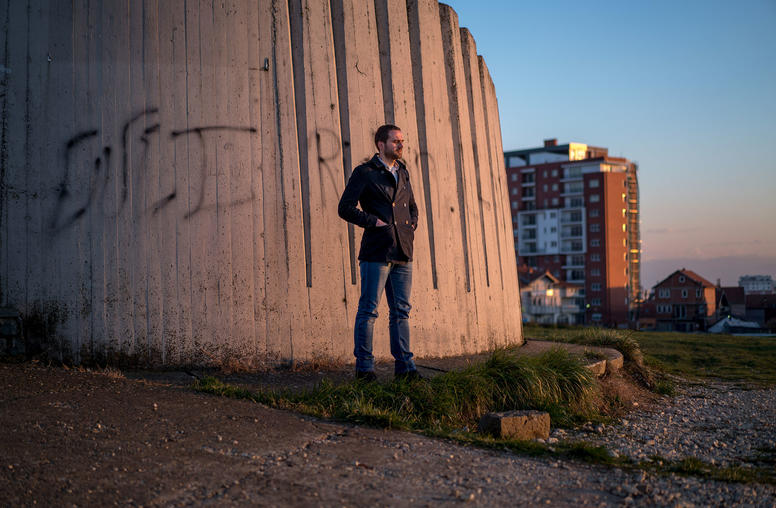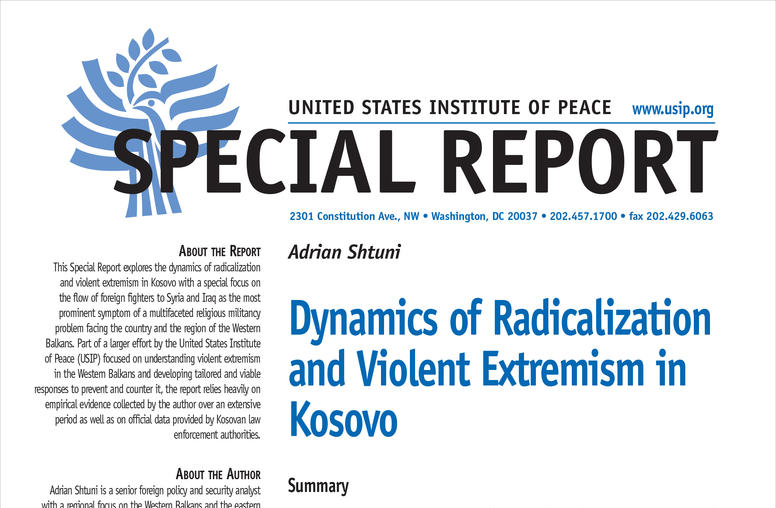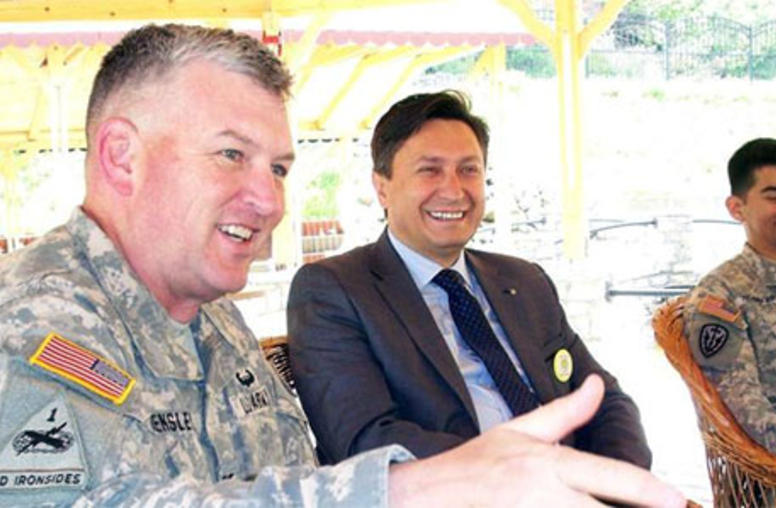Ted Feifer of the Professional Training Program conducted a workshop for 26 Kosovo municipal officials May 26-28, 2004.
Ted Feifer of the Professional Training Program conducted a workshop for 26 Kosovo municipal officials May 26-28, 2004. USIP was invited by Mercy Corps Kosovo to provide conflict management skills training in support of its USAID-funded Municipal Infrastructure and Support Initiative, which seeks to encourage municipal officials to take a more active role in improving the situation of ethnic minorities that have remained in Kosovo, and to improve the prospects for refugee and IDP returns. The program was conducted in English, with simultaneous interpretation into Albanian and Serbian.
improving the situation of ethnic minorities that have remained in Kosovo, and to improve the prospects for refugee and IDP returns. The program was conducted in English, with simultaneous interpretation into Albanian and Serbian.
Participants were municipal Directors of Economy and Finance, Directors of Urbanism and Spatial Planning, Directors of Reconstruction and Planning, and staff from Municipal Community Offices. There were members of various ethnic groups attending the workshop from Kamenice/a, Gjilane/Gnjilane, Novoberde/Novo Brdo, Fushe Kosove/Kosovo Polje, Rahovec/Orahovac, Obilic/q, Lipjan/Lipljan, and Istog/k. Almost all these municipalities experienced violence against Serbian and other minority residents during the March 2004 riots.
Participants saw the training as practical in helping them deal with interethnic problems, relations with other municipalities, and real problems that they might face. One praised the training "because we learned new ways to work on reconciliation and solving problems between communities," while another saw the training as "useful in developing skills for facing different challenges in real situations, and in creating a vision for a better future for the general benefit."




